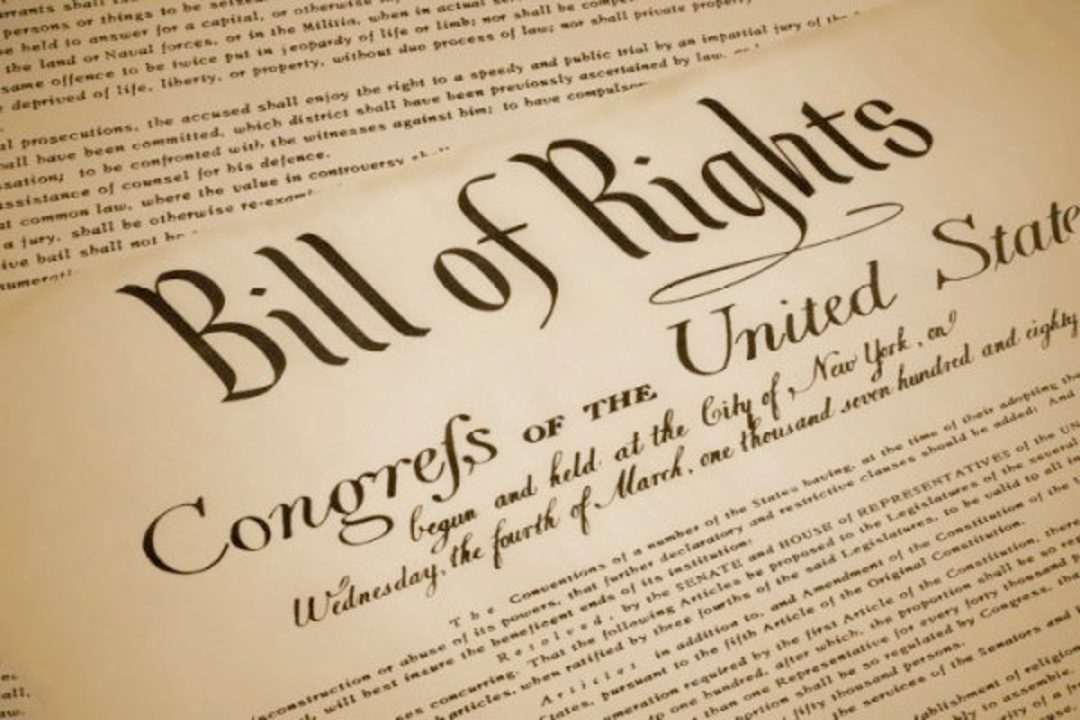
The very first Congress, in 1789, was opened with Christian prayers. Congress continued opening with Christian prayers in following years, and it opens with prayers today — and they’re still usually Christian. Despite this, somehow, some way, somebody at some point got the idea that it was unconstitutional for a public-school football coach to do what Congress does, even if he does it privately. With the Supreme Court finally having put this notion to bed in 2022, however, a question arises.
Are we beginning to restore a proper understanding of religion’s place in the American Republic?
Addressing this last Friday, commentator Thomas Connors wrote:
The people of the United States established its Constitution to secure the blessings of liberty and then amended it to bar Congress from making laws establishing religion or prohibiting its free exercise. Unfortunately, our courts have distorted the meaning of these provisions to effectively establish a secular or materialistic ideology as our national belief system.
The Supreme Court, in Lemon v. Kurtzman (1971), held that, under the Establishment Clause, government action must have a secular purpose and not have a primary effect that advances or inhibits religion. However, in The American Legion v. American Humanist Association (2019), it partially backed away from Lemon….
This was for good reason, too.
It’s a Lemon
Clarifying the matter further are Nate Kellum and Andrea Justus of the First Liberty Institute. Pointing out that Lemon is no longer a valid precedent at all, they write at American Thinker today:
The Court’s decision in Kennedy [Kennedy v. Bremerton School District, 2022], written by Justice Neil Gorsuch, explicitly rejected the Lemon test, stating “But — given the apparent ‘shortcomings’ associated with Lemon’s ‘ambitiou[s],’ abstract, and ahistorical approach to the Establishment Clause — this Court long ago abandoned Lemon and its endorsement test offshoot. In place of Lemon and the endorsement test, this Court has instructed that the Establishment Clause must be interpreted by ‘”reference to historical practices and understandings,”'” solidifying the shift away from its flawed framework in favor of a historical understanding of the Establishment Clause.
In Kennedy, the Court addressed the case of a public high school football coach who was disciplined for privately praying on the field after games. The Court ruled in his favor, affirming that the Free Exercise and Free Speech Clauses protect such individual religious expressions and that the Establishment Clause does not mandate the suppression of religious observance in public spaces. In reaching its decision, the Court explicitly stated that the Lemon test and its associated “endorsement” test were no longer good law, directing courts to interpret the Establishment Clause with reference to “historical practices and understandings.”
As noted by Connors, for decades, the Lemon test imposed a “schizophrenic” standard, requiring the action of individuals representing government entities to have a purely secular purpose and neither advance nor inhibit religion while simultaneously at the highest levels alluding to God in numerous ways throughout government institutions and practices.
Religious Freedom for Me but Not Thee, Subject
So the Lemon yardstick was emphatically un-American. Aside from being unconstitutional, it established a classist double standard. Elites (and pseudo-elites) in government’s upper echelons could still open their official business with prayers. (And, boy, even when they’re atheists, they sure may cling to their traditions!) Yet the “lowly” football coach, or some other “regular” guy, cannot enjoy the same right within his sphere of endeavor.
Perhaps part of the issue is that the anti-theistic cultural devolutionaries know that the governmental elites’ prayer is usually performative. The “lowly,” however, may actually be submitting to He who is highest. And all that’s necessary to suppress faith is to trample the rights of those who actually believe.
Regardless, that’s what it amounted to. Anti-theistic judges and plaintiffs would beat up on the powerless, forbidding them from fully practicing their religion. Meanwhile, these ne’er-do-wells wouldn’t dare touch the Congress’ prayers. Royalty gets to do what it wants.
The First Amendment’s True Meaning
This has led to the aforementioned “schizophrenic” paradigm. As the aforementioned Connors wrote:
It is now considered axiomatic that when our government acts, its purposes must be purely secular. Such purposes, it would follow, must be formed without reference to God. And yet, we regularly allude to God in the context of government, whether with our pledge to one nation under God or with the words “in God we trust” on our currency.
And how’d we get to this point? In the Baer v. Kolmorgen case (1958), Westchester County Supreme Court Judge Elbert T. Gallagher issued a telling complaint. The phrase the “separation of church and state,” he said, “has received so much attention that one would almost think at times that it is to be found somewhere in our Constitution.”
Of course, it is not. All the First Amendment forbids is the “establishment” of an official national church. Do you know where the “separation” phrase is found, though?
In the 1936 Soviet constitution — also known as the “Stalin Constitution.”
From Law to Logic
More can be said about the legal/constitutional aspects of religion in government. (Regarding this, click here, here, and here.) Changing the incorrect anti-theistic “separation” mentality, however, requires a philosophical argument. So here we go.
Imagine that the religious ideas in question really have been handed down by God, Creator of the Universe and Inerrant Author of All. Don’t we then have a duty to infuse our public sphere with them? Is it not then an imperative that we immerse schoolchildren in this divine light? Of course, naysayers may now respond, “Not everyone worships sky fairies! These are just man-made beliefs.”
All right, but if so, why say that the man-made beliefs we happen to call “secular” may be in the public square, but the man-made beliefs we happen to call “religious” may not be? If they’re all man-made, wherein lies the difference?
Conclusion: Either these beliefs are man-made, in which case they can share the table with other man-made ideas. They then may be in the public square.
Or they’re from God and must be there.
Take your pick. But claiming, with credibility, that religious ideas mustn’t occupy public arenas merely because they are “religious” is not an option.




